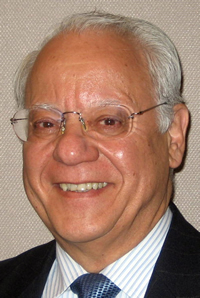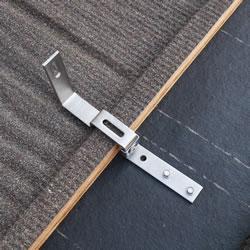Fuel Additives and the Environment
Sergio Trindade Ph.D | International Fuel Technology
1. What’s IFT’s business model?
IFT`s main asset, besides people, is its proprietary technology. This is where IFT focuses its resources. As a result, IFT outsources marketing, distribution and manufacturing. IFT supports marketing with scientific and technological backing, from its staff and from reputable laboratories in the US, Europe, Brazil, China, India, South Africa and Thailand. Depending on the geographic market, distribution can either be exclusive or not, and the manufacturing is outsourced to well known and established companies, such as Air Products in the US and Multisol in France.
2. How can IFT’s products help businesses cut costs while improving their environmental footprint?
There are two lines of IFT technologies.
One – DiesoLiFTTM 10, GasoLiFTTM 10 and KeroLiFTTM 10 - saves fuel (diesel, gasoline, kerosene, respectively); cuts down emissions of air pollutants, decreases greenhouse gas emissions per unit of work delivered; and reduces maintenance costs.
The other – DiesoLiFTTM BD-series - deals with biodiesel and protects fuel against oxidation in the short and long term, during storage, for example. A stable biodiesel whether blended with or without diesel fuel, provides for a smooth engine operation and lowers operational and maintenance costs.
3. Do businesses that use IFT’s products require any special equipment to add the additive to their fuel? What type of fuel do IFT’s products apply to?
IFT products are liquids at ambient temperature, easily mixed with the fuels they additize, by splash blending. The recommended treat rate varies with the fuel. Typical treat rates are 1:600 for DiesoLiFTTM 10 and 1:1,000 for the other products. The preferred way to add IFT products to fuels depends on how the equipment is refueled. For instance, for fleets that are refueled from a central storage tank (s), the additive is added to the tank at the appropriate dose before the tanker truck unloads fuel into the storage tank. This operation can be accomplished manually or through a simple dosing system with a calibrated additive pump, easily found from a number of suppliers. For fleets, which refuel on the road, the driver would carry a measured additive bottle and have a conversion table listing the volume of additive that should be added proportionately to the volume of fuel resupplied.
The bulk of IFT`s cumulative experience applies to diesel fuel, but early indications are that gasoline and kerosene can also benefit from IFT`s technology to improve fuel efficiency, lower emissions and reduce maintenance costs.
IFT`s biodiesel antioxidants and stabilizers are dosed at the end of the processing in the biodiesel plant by a dosing system similar to the one described for the IFT fuel improvement products. From there the biodiesel is stored in tanks prior to dispatching to the market in tanker trucks. Treat rates vary depending on the nature of the feed stocks and the production process. They range from 100 part per million (ppm) to 1,000 ppm.
4. There are a lot of additive products out there making unsubstantiated claims. What makes DiesoLiFT™ 10 different from other fuel additives both from a scientific perspective, and also from a company viewpoint? How can we be sure IFT’s products perform as advertised?
IFT is unrivaled in the additive space with respect to lab and field testing. IFT products have been tested in all continents, except for Antarctica. With respect to DiesoLiFTTM 10, IFT`s product for diesel fuels, the population of results returned crowds within 3% to 6%. The labs that have tested IFT products include the Southwest Research Institute – SwRI, San Antonio, TX; Motive Power Industries – MPI, Boise, ID; Montana State University – Northern – MSU-N; Forest Engineering Research Institute of Canada - FERIC; mi Technology, UK; BfB, Belgium; AGQM, Germany; Qinhgua University, China; National Institute of Technology - INT, Brazil; MTEC, Thailand; and SABS, South Africa. Besides the lab tests, a large number of field trials has taken place in the US, Europe, Australia, Brazil, China, India, South Africa, Zimbabwe.
Just one example will answer this query: Schnucks Markets, a supermarket chain covering 7 states in the Midwest from their headquarters in Saint Louis, MO, has been using DiesoLiFTTM 10 in their entire fleet for some three years. They have found substantial savings in both fuel consumption and maintenance costs. IFT technology is proven and we've been repeatedly validated by testing and trials!
5. What exactly does DiesoLiFT™ 10 do and how does this benefit the environment?
DiesoLiFTTM 10 is a multifunctional diesel fuel additive. It promotes fuller combustion by better atomizing the fuel injected into the combustion chamber, thus offering more specific area for fuel combustion to take place. Better mileage ensues. As a corollary less carbon monoxide, unburned hydrocarbon and particulate matter are emitted.
The other functions of DiesoLiFTTM 10 are increased lubricity, higher detergency and the ability to incorporate the water present in the fuel systems into the body of the fuel thus preventing the growth of microorganisms. The bottom line here is lower maintenance cost.
6. Do your additives work with biofuels, if so, how?
Another IFT additive, DiesoLiFTTM EM1, used with biodiesel blends, such as B20 is able to stabilize the fuel and recover the mileage lost due to the lower heat content of the 20% biodiesel present in the blend.
And DiesoLiFTTM 10, when added to stable biodiesel blends is able to recover lost mileage plus the other functional benefits, mentioned above. IFT technology can also help stabilize ethanol-gasoline blends.
7. What companies have IFT partnered with to date and who is using these additives right now? What industries are they focusing their additives toward?
In the Unites States there are a number of longstanding users in freight and the road markets, where Schnucks Markets stands out as a happy customer. Another satisfied customer is East Midlands Trains, which operates a light rail passenger transport service in the UK, using Disesel Multiple Units – DMU and is getting 4.4% fuel efficiency improvement in the totality of their fleet. In Europe, IFT technology is often formulated with other components and sold under the client`s label. In China, the Coca-Cola distributor Swire is happily using DiesoLiFTTM 10 in 4 provinces. In India, IFT`s distributor has managed to reach a number of commercial fleets and is getting repeat orders.
Our immediate focus is fuel efficiency improvement and reduction in emissions. But with continued use, the benefits of lower maintenance cost surface.
With respect to biodiesel stabilization and oxidation protection, sales have begun in Europe and there are prospects in Argentina and Brazil.
8. What challenges does IFT face with more biofuels coming into the fuel space?
I would say this is more of an opportunity than a challenge. IFT technology has demonstrated it can save fuel, curb emissions and reduce maintenance costs in situations involving ethanol, biodiesel and diesel. IFT is prepared to support the increased market penetration of biofuels by stretching their use by saving fuel. In fact, if the use of 1:600 (0.1666 %) of DIesoLiFTTM 10 with pure diesel fuel can displace 5% of the fuel, then it is equivalent to B5, a diesel fuel blend with 5% biodiesel.
 Dr. Sergio Trindade, IFT’s Director of Science & Technology, is a globally recognized consultant and expert in sustainable energy and alcohol fuels. His experience within the international energy field is abundant, especially concerning alternative energies.
Dr. Sergio Trindade, IFT’s Director of Science & Technology, is a globally recognized consultant and expert in sustainable energy and alcohol fuels. His experience within the international energy field is abundant, especially concerning alternative energies.Dr. Trindade is a Co-laureate of the 2007 Nobel Peace Prize as a member of the International Panel on Climate Change (IPCC). He also served as the Assistant Secretary-General of the United Nations (UN) for Science and Technology for five years and continues to provide consulting to the UN system, including the World Bank, and many other organizations regarding energy and environmental issues. Sponsored by the Inter-American Development Bank and working with SENER Ingeniería y Sistemas, S.A. (SENER), he has contributed to the National Biofuels Program and has previously explored the prospects of sugar cane based fuel ethanol. Dr. Trindade also serves on the board of advisors for the Baylor University Institute for Air Sciences.
At IFT, Dr. Trindade engages in strategic planning, technology development and marketing for many countries around the world. He provides expert technical consulting for IFT and its commercial clients and plays an integral part in the research and testing of IFT products.
The content & opinions in this article are the author’s and do not necessarily represent the views of AltEnergyMag
Comments (0)
This post does not have any comments. Be the first to leave a comment below.
Featured Product

QuickBOLT - QB RibRider: Flexible, Fast, and Secure Solar Mounting for Metal Roofs
The QB RibRider™ is an adjustable and easy-to-place mount for exposed fastener and trapezoidal ribbed roofs, combining versatility with robust construction. It features a 90/180 mounting combo with 75mm butyl pads on the base for superior weatherproofing. The RibRider is designed to fit most exposed fastener, trapezoidal, and ribbed metal roof profiles. This mount features stainless steel roof brackets and comes with four #14 x 1-1/4" hex washer self-drilling screws, ensuring a secure attachment to the roof.
